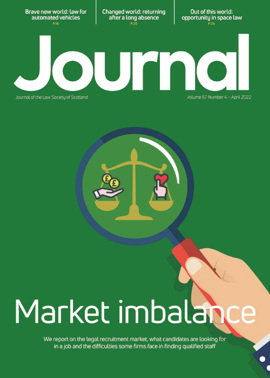Property: RCI – what does it involve?

The Register of Persons Holding a Controlled Interest in Land (“RCI”) came into force on 1 April 2022, albeit failure to register in the RCI will not constitute a criminal offence until 1 April 2023.
Overview
The RCI will be managed by Registers of Scotland (“RoS”). It is designed to show who has significant influence or control over the owners or tenants (of leases longer than 20 years) of property in Scotland where such information is not publicly available elsewhere. Such owners or tenants are known as “recorded persons”; persons and entities who have significant influence or control over recorded persons are “associates”.
There is no cost to record an entry, nor to inspect the RCI. However, from 1 April 2023 it will be a criminal offence to fail to register, punishable by a fine.
Sources
The regulations setting up the RCI, and containing the detailed obligations, are the Land Reform (Scotland) Act 2016 (Register of Persons Holding a Controlled Interest in Land) Regulations 2021 (and amendments).
In addition:
(i) the Scottish Government has prepared an explanatory document to be read alongside the regulations;
(ii) Registers of Scotland has published guidance on the RCI on its website; and
(iii) the Property Professional Support Lawyers Group have prepared an article, published online with this issue, giving more detail, and examples, about the application of the regulations.
Who will this affect?
Schedule 1 to the regulations sets out five categories of owner/tenant who will be obliged to register as recorded persons and provide details of associates.
These are (i) individuals who are subject to contracts or other arrangements; (ii) partnerships; (iii) trusts; (iv) unincorporated associations; and (v) overseas entities (which will separately need to register in the Register of Overseas Entities, when the relevant provisions of the Economic Crime (Transparency and Enforcement) Act 2022 come into force). All of these categories are subject to exceptions. Owners and tenants of a type listed in sched 2 (which includes UK limited companies and limited liability partnerships among other entities subject to other relevant transparency regimes) are also exempt from being a recorded person. Therefore, UK limited companies would not be included in the RCI as recorded persons, but would require to be included as associates if they satisfied the criteria.
The detail contained in sched 1 is key to identifying the parties that should be recorded as recorded persons and associates. For example, the following scenarios will frequently arise and could give rise to an obligation to register:
(i) land held by or on behalf of a partnership, where not all the partners are registered as owners in the Land Register of Scotland or Register of Sasines;
(ii) land held by or on behalf of a trust, where not all the trustees are registered as owners in the Land Register or Sasine Register; and
(iii) land held for an unincorporated association where any person who is responsible for the general control and management of its administration is not registered as owner in the Land Register or Sasine Register.
Obligations to register
The RCI comes into force on 1 April 2022, but with a grace period of 12 months during which failure to register will not constitute a criminal offence.
Interests in land that are already “controlled” come under the obligation to register, as well as interests in land that become “controlled” after 1 April 2022. The expectation is that providing for the 12-month period of grace will give sufficient time for such interests to be identified and then registered.
The primary obligation to register is imposed on the recorded person, who must notify the Keeper within 60 days of an associate becoming their associate and, having done so, must notify the associate within seven days of that notification to the Keeper. However, if an associate is not notified by the recorded person, then the associate, if it knows or ought reasonably to know that it is an associate of the recorded person, is obliged to notify the recorded person of that fact. So, both the recorded person and the associate have responsibilities in relation to the appropriate registration in the RCI. Recorded persons and associates also have obligations respectively to verify and confirm the information to be submitted, and to keep the RCI up to date.
Failing to register
The grace period will end on 1 April 2023, and those who have not registered before that date will risk committing a criminal offence with the penalty of a fine.
Security declarations
The legislation recognises that there may be situations where inclusion on the open register of an individual’s details may put that individual at risk of violence, abuse, threat of violence or abuse, or intimidation. In such circumstances a “security declaration” may be made and while that remains in force, no information about the individual will be disclosed on the RCI.
Wider awareness
The RCI is a register of persons rather than a property register.
Obligations to register in the RCI can arise without any underlying conveyancing transaction: for example the assumption of a new partner or new trustee could trigger a requirement to register.
Practitioners, and not just conveyancing practitioners, should consider the potential application of the regulations when acting for their clients. In particular, practitioners should be clear whether or not their engagement includes advising on the application of these regulations.
Perspectives
Features
Briefings
- Criminal court: Thom bar still applies
- Licensing: tighter rules for the pet trade
- Insolvency: Transition from the COVID measures
- Tax: What did the Spring Statement bring?
- Immigration: Providing a home for Ukrainians
- Scottish Solicitors' Discipline Tribunal
- Property: RCI – what does it involve?
- In-house: Looking for a star






